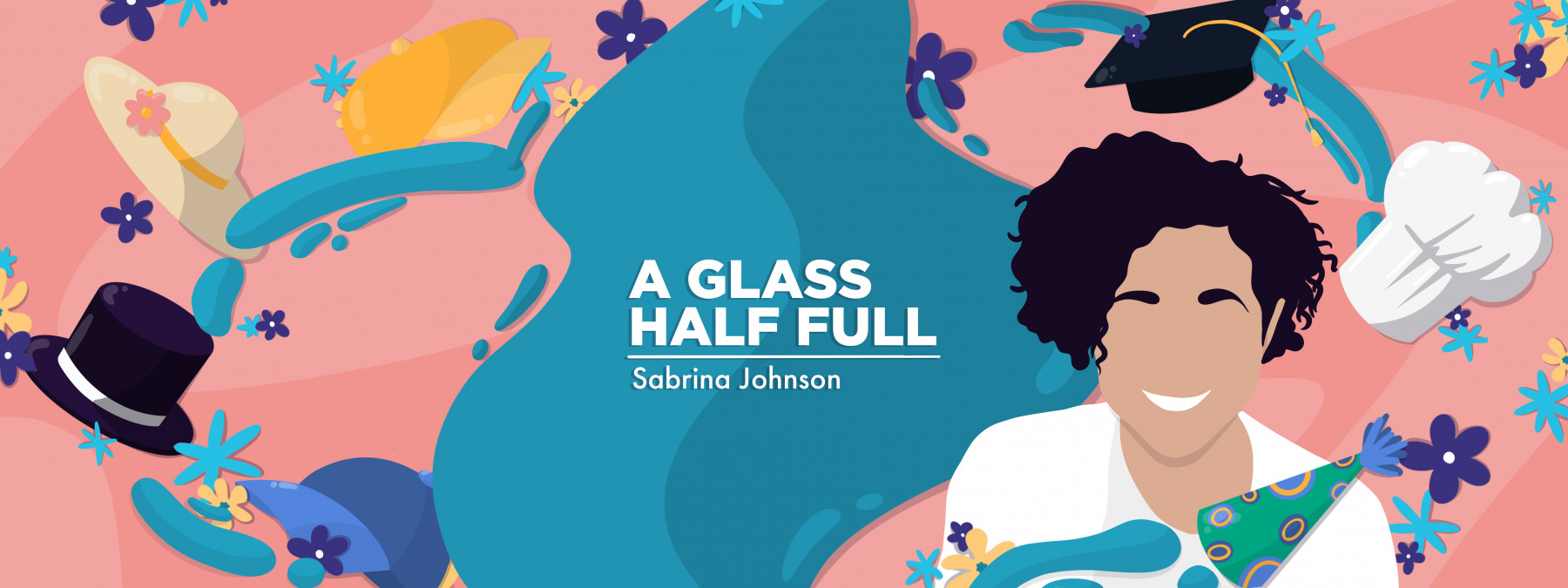Why drinking and caregiving aren’t a good mix for me
Quitting alcohol was the right choice for me and my Angel
Written by |

Believe it or not, I have something in common with celebrities Jessica Simpson, Drew Barrymore, and Nicki Minaj. What’s our bonding link? We’ve all quit alcohol.
When people decide that they’d rather not drink, there may be a host of reasons, such as mental and physical health. As a parent to my 13-year-old Angel, Juliana, caregiving was at the heart of my decision.
Life with Angelman syndrome (AS) can be challenging and unpredictable. At the forefront of those difficulties are the health issues that come with managing my child’s neurogenetic disorder.
People with AS require lifelong care. As Juliana’s mother and primary provider, I must see to her daily living, health, and educational needs. Taking care of another person is a full-time job in itself. Alcohol hindered my work.
Little sipper
I’d always been a light social drinker and would occasionally enjoy wine at special events or on weekends after a tough or stressful week. When Juliana and her sister Jessa, who’s now 11, were toddlers, I started noticing a pattern.
On the days after I had a drink, my patience was shorter. My outlook on life as a special needs parent wasn’t “a glass half-full.” A long day of caregiving seemed tougher than usual. More than anything, I lacked the energy to do all that I needed to accomplish in a day.
For a while, I just ignored the feelings. People would joke with me and tell me that if I drank more often, I wouldn’t feel so bad on the rare occasions when I chose to have a sip or two.
My feelings started to change around the time that I began purging our house of excess items. I figured that if I was getting rid of items I no longer needed, why not also give up alcohol, which didn’t help me feel better?
The last drink I remember having was at a friend’s 40th birthday celebration. That was almost four years ago, and I have no regrets. I’m happy with my decision and don’t miss feeling too groggy or grumpy to take on the day.
Sometimes, when I have a really tough time with Juliana, I’ll turn to my husband and say, “I can’t believe I don’t drink.” It’s become our own little joke.
If I were still drinking, our staycation last summer would have been the perfect occasion for it. Juliana was in the midst of lots of prepubescent behaviors, which made our getaway more stressful than usual. We made the best of it, but much of her acting out showed up in the form of refusing to cooperate, loud screaming, and crying.
At the pool one night when she was calm, I turned to my husband and stated my line about not drinking. We had a laugh about how hard the day had been. But our follow-up conversation was about how alcohol still isn’t a good coping mechanism for me.
Not even just a little?
When I joined the ranks of nondrinkers, I prepared myself for the raised eyebrows and questions that I still get today. I don’t get defensive. Explaining how exhausting caregiving can be and how necessary it is to have all my faculties usually shuts down the queries about me quitting alcohol.
I also make it clear that I don’t judge those who choose to drink. The celebrities I mentioned have their personal reasons for not drinking, and I have mine. It’s a choice that works for me.
Someday, when my load is a little lighter, I might choose to enjoy a nice glass of wine again. But I might also remember that a virgin mojito is just as good as the alcoholic version. And that my sparkling apple cider toast counts just as much as the ones made with Champagne.
Note: Angelman Syndrome News is strictly a news and information website about the disease. It does not provide medical advice, diagnosis, or treatment. This content is not intended to be a substitute for professional medical advice, diagnosis, or treatment. Always seek the advice of your physician or other qualified health provider with any questions you may have regarding a medical condition. Never disregard professional medical advice or delay in seeking it because of something you have read on this website. The opinions expressed in this column are not those of Angelman Syndrome News or its parent company, Bionews, and are intended to spark discussion about issues pertaining to Angelman syndrome.







Leave a comment
Fill in the required fields to post. Your email address will not be published.